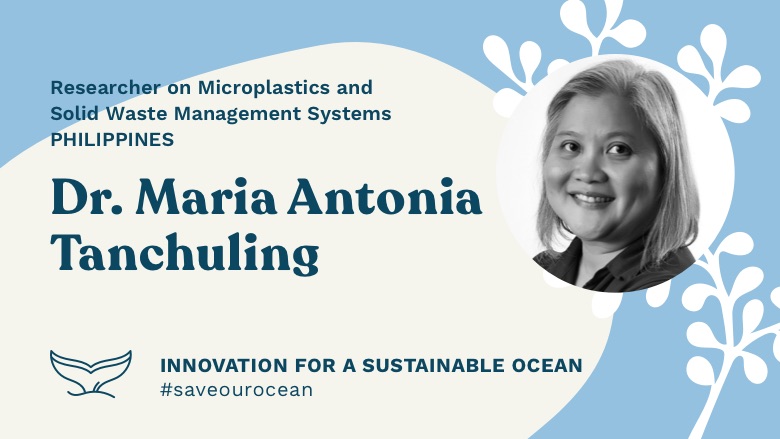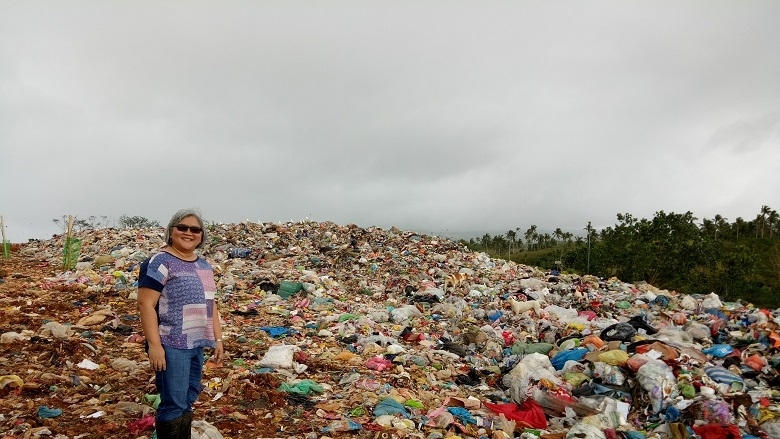Tell us about yourself.
I have been working on solid waste management for many, many years now. I analyze the entire story of waste – where waste goes, which components go where, how much waste gets collected, and how much is reused, recycled or composted.
I am a Professor at the Institute of Civil Engineering and Faculty of the Environmental Engineering Graduate Program at the University of the Philippines Diliman. I also serve as the Chairperson of the Philippine Association of Tertiary Level Educational Institutions for Environmental Protection and Management, and I am a Principal Engineer at AMH Philippines, an engineering consultancy firm.
When we study the composition of waste, we see how much plastics there are in waste. We also see how much plastics waste is leaked into the open environment, like rivers, which eventually end up in oceans.
Tell us about your work.
In 2017, as part of a World Bank program I had the opportunity to learn about microplastics at The German Federal Institute of Hydrology in Koblenz. When I returned I started researching microplastics here as there are very few of these studies conducted in the Philippines.
Microplastics are plastics that are about 5mm small or less. The presence of microplastics in our rivers and lakes poses a risk to living organisms that could mistakenly ingest the plastics as food. This can cause a biological impact that impacts commercial fisheries.
We’ve studied the composition of microplastics in rivers within the National Capital Region that flow into Manila Bay and Laguna Lake, the largest lake in the Philippines. Our studies help determine where waste management interventions should take place.
Another project I am working on is called the Integrated Waste Analysis, Survey and Technological Options, or IWASTO, which is Filipino for ‘Make it Right’. It is part of a program funded by the Department of Science and Technology that seeks to rehabilitate Manila Bay.
Through this project, we look at the waste management practices of local government units and the reasons why waste ends up in the canals and rivers of the capital, and eventually in Manila Bay. We would like to educate and work closely with communities in Manila on proper solid waste management and promote technologies developed by the department. We plan to make information regarding waste practices publicly available through a mobile app and database.
What drives you to do this work?
I like being out in nature. The ocean is filled with so much marine life that is diverse and beautiful. I was born in a mining town by the sea in Camarines Norte and growing up we frequented the beach. I grew up loving the sea. Adventures for me were riding boats and playing in the ocean.
Plastics should not be strewn about in the beach or floating in the waters. They don't belong there. Plus of course, the harm plastics cause to marine organisms is terrible.
But I am most passionate about safe water for all, because it is the poor who suffer the most from the lack of a clean water supply. Living in poor physical environments exacerbates problems the poor already must face.
The solution to saving our oceans should be tackled upstream. This is why I am also quite passionate about using the limited resources of the Earth wisely. We should reduce the amount of stuff we buy, use and waste. In so doing, we can reduce our carbon footprint.


